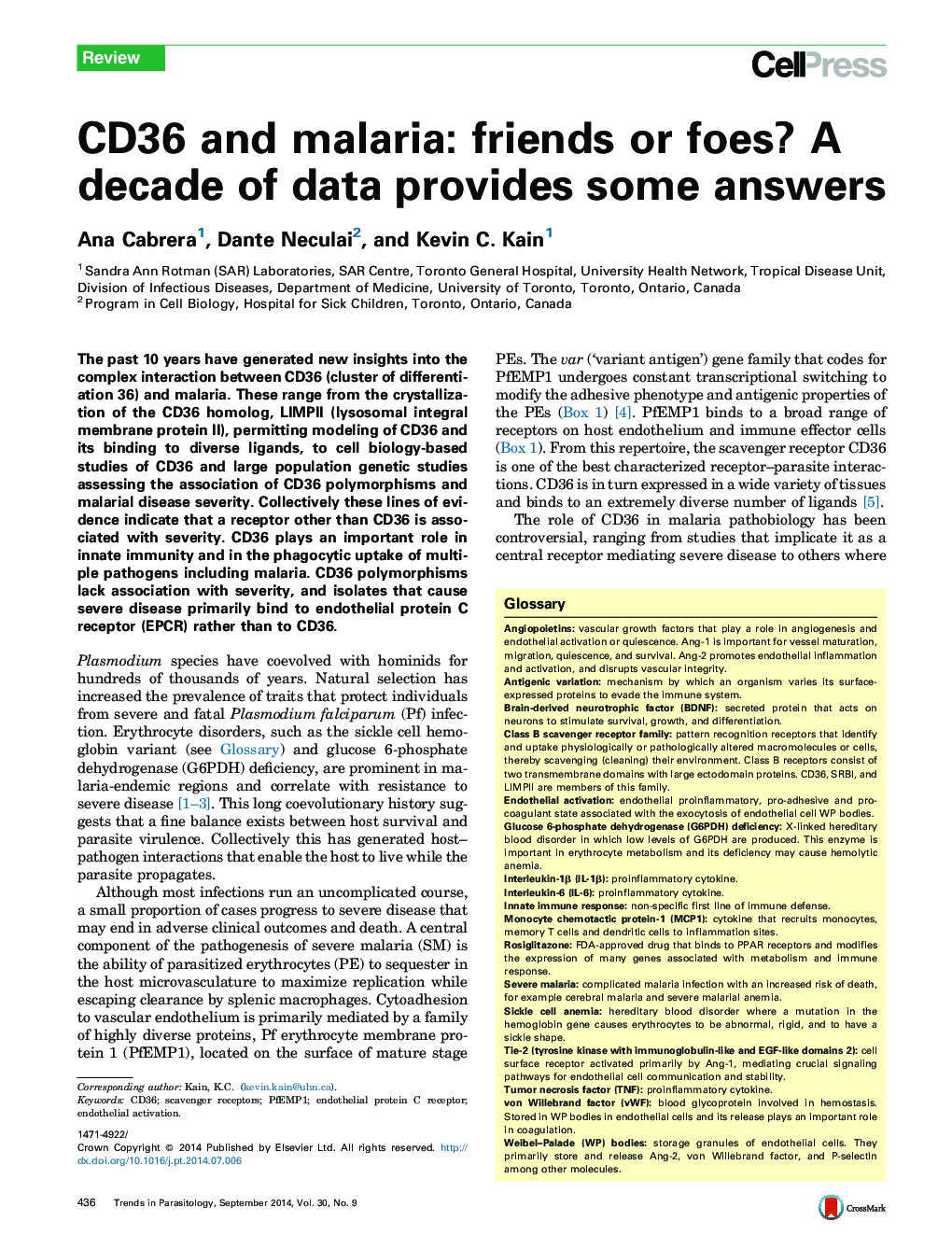| Article ID | Journal | Published Year | Pages | File Type |
|---|---|---|---|---|
| 3423158 | Trends in Parasitology | 2014 | 9 Pages |
•CD36 plays important roles in metabolic homeostasis and innate immunity.•CD36 polymorphisms are not associated with severe malarial syndromes.•Isolates associated with severe and cerebral malaria bind to EPCR but not to CD36.
The past 10 years have generated new insights into the complex interaction between CD36 (cluster of differentiation 36) and malaria. These range from the crystallization of the CD36 homolog, LIMPII (lysosomal integral membrane protein II), permitting modeling of CD36 and its binding to diverse ligands, to cell biology-based studies of CD36 and large population genetic studies assessing the association of CD36 polymorphisms and malarial disease severity. Collectively these lines of evidence indicate that a receptor other than CD36 is associated with severity. CD36 plays an important role in innate immunity and in the phagocytic uptake of multiple pathogens including malaria. CD36 polymorphisms lack association with severity, and isolates that cause severe disease primarily bind to endothelial protein C receptor (EPCR) rather than to CD36.
